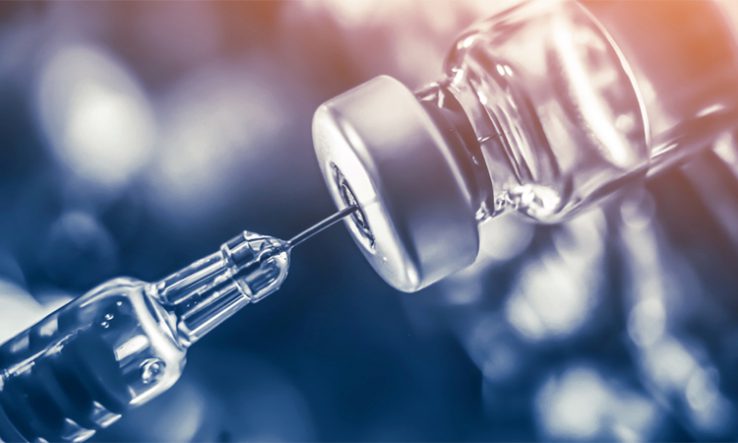
Speed of results on vaccine candidate developed by Moderna and NIH hailed as ‘truly extraordinary’
The public-private partnership behind a promising Covid-19 vaccine candidate has been hailed as “historic” by United States health secretary Alex Azar.
On 16 November, the announcement of results from 95 participants in a late-stage clinical trial indicated that the vaccine candidate, developed by the US pharmaceutical company Moderna in collaboration with the National Institutes of Health, had an efficacy of 94.5 per cent.
“The way that the NIH and Moderna have worked together to produce their highly promising vaccine is just one example of what American industry and American government can do when we work together,” Azar said.
Stéphane Bancel, chief executive of Moderna, said the partnership had “enabled us to do what we could not have done alone in industry, and what I think the government could not have done alone”.
“I think none of us truly thought we could get to this place in the last 10 months,” Bancel added.
Azar outlined how the groundwork for the vaccine had begun in January as soon as the genetic sequence of the virus that causes Covid-19 had been published by scientists in China. Researchers at the National Institute of Allergy and Infectious Diseases, part of the NIH, carried out work on the spike protein of the virus that Moderna used to develop the vaccine candidate.
NIAID director Tony Fauci described the results as “truly striking” and put the success of the partnership with Moderna down to a long-term relationship with the company. He added that “people need to understand the importance of basic biomedical research investment”.
“I said I would be satisfied with a 70 to 75 per cent efficacy and that something like 95 per cent was really aspirational—well, our aspirations have been met,” Fauci said.
In addition to the partnership with the NIAID, the US government supported Moderna with more than $2 billion for vaccine development and manufacturing through Operation Warp Speed, the country’s initiative to produce and deliver 300 million Covid-19 vaccine doses by January 2021. Azar said that before the results were available, “large-scale manufacturing of the Moderna vaccine [had] been underway for some time”.
Matthew Hepburn, vaccine development lead for Operation Warp Speed, said it was “truly extraordinary” that the results were available so soon. “It is really a testimony to science, to basic biomedical research, to those hundreds of thousands of people worldwide that do this for a living,” Hepburn added. “I hope it inspires the next generation of scientists, of researchers.”
Support for the work on the vaccine came from a variety of sources, including a donation from the Dolly Parton Covid-19 Research Fund set up by the country music singer who lent the fund her name.
The news of the promising results came a week after US pharmaceutical giant Pfizer and German biotechnology company BioNTech released early results for their own Covid-19 vaccine, reporting an efficacy of more than 90 per cent which was later raised to about 95 per cent. Dozens of other vaccine candidates are also in development around the world.
Vaccines are sorely needed: in an update on 15 November, the World Health Organization said that the number of cases of Covid-19 being reported globally was continuing to rise, alongside the number of deaths attributed to the pandemic. It said the Americas reported a 41 per cent increase in cases in the past week, with the US reporting over a million cases during that period.
A version of this article also appeared in Research Europe